Timeline
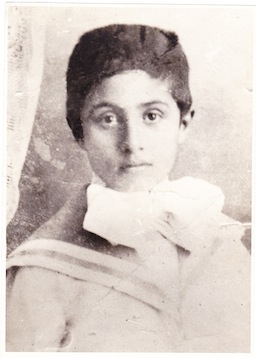
Michel Chiha is born in Mekkine, Chouf district, Mount Lebanon. The long awaited son after six daughters in succession. A further son and daughter would follow his birth.
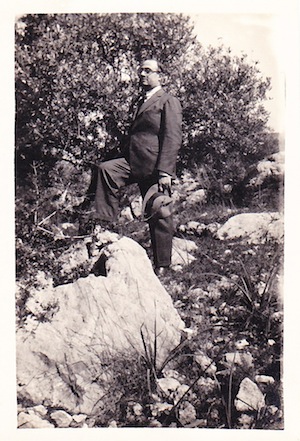
Michel Chiha takes refuge in Egypt to avoid Turkish repression (1914-1918). Like many of his compatriots, Michel Chiha had to leave Beirut during the 1914-1918 Great War and settle in Cairo where he studied Law and obtained his law degree.
In a letter found in the family archives addressed to the poet Hector Klat, he describes his life in exile: visits to friends, changing residences between Helouan, Cairo, and Alexandria, and his enforced retreat to Ras-el-Bar. Most of his time was spent preparing for his law degree and editing the journal ‘Ébauches’.
Michel Chiha takes up residence in Cairo.
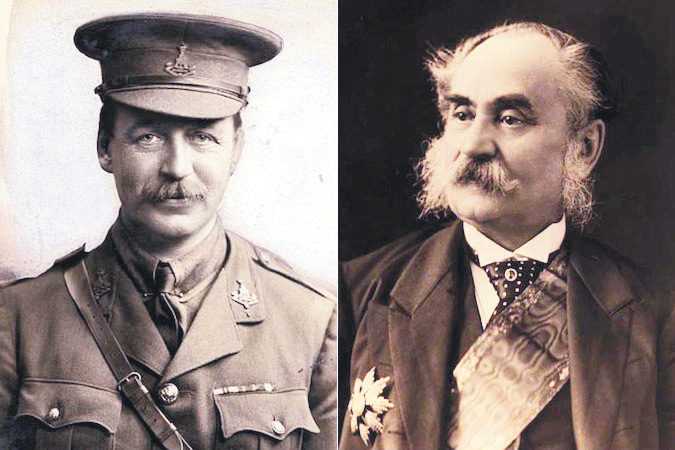
On May 16th, The Sykes-Picot Agreement was concluded in London by English diplomat Mark Sykes and French diplomat Georges Picot, dividing the Near East into two spheres of influence between France and Great Britain.
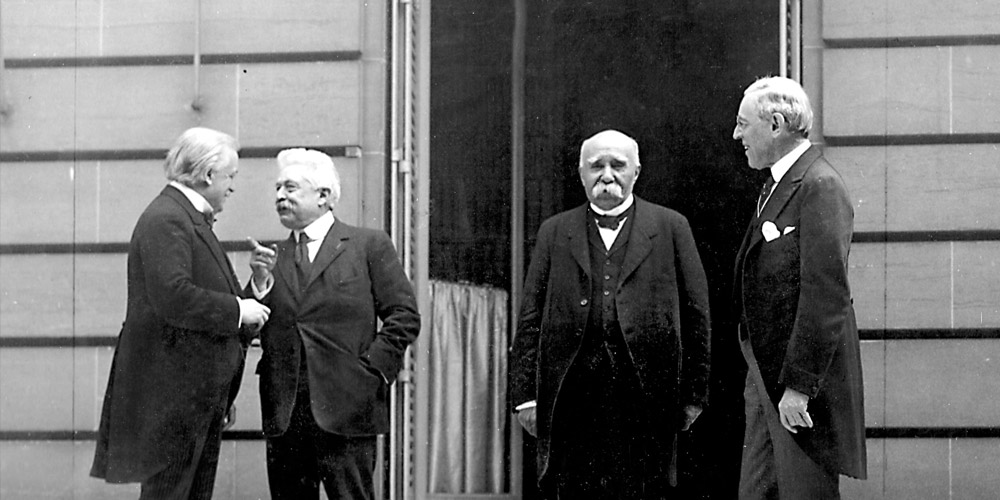
The Paris Conference declares an end to the German, Austrian, and Ottoman Empires (Jan 1919 – Aug 1920)
The Big Four (from left): Lloyd George, Orlando, Clemenceau, Wilson.
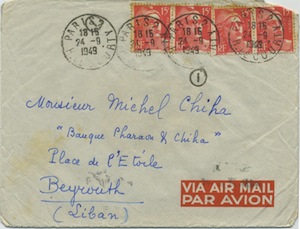
After a three-year exile in Egypt, Michel Chiha returned to Beirut at the end of the Great War.
He takes over the direction of the Pharaon and Chiha Bank at one of the most difficult times in his country’s history. Michel’s father Antoine passed away in 1903 having co-founded the Bank in 1876. A nationwide famine had decimated a quarter of the population and one-fourth of the country’s homes were in ruins.
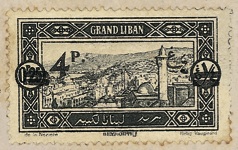
On the 1st of September 1920, General Gouraud, High Commissioner of the French Republic and Commander in Chief of the French Levantine Army (1919 – 1923) proclaimed the independence of Greater Lebanon.
The 1st of September would continue to be celebrated for the next 23 years until 1943, when it was changed to November 22nd.
Gouraud was appointed the first high commissioner to the Levant from 1919 to 1922 succeeded by Robert de Caix from 1922 to 1923.
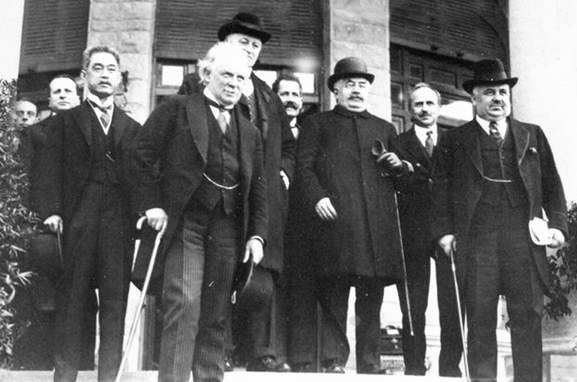
San Remo Conference – Its outcome, the Treaty of Sèvres, abolishes the Ottoman Empire and decrees a French Mandate over Syria and Lebanon and a British Mandate over Palestine
The prime ministers of Great Britain, France and Italy, and representatives of Japan, Greece, and Belgium.
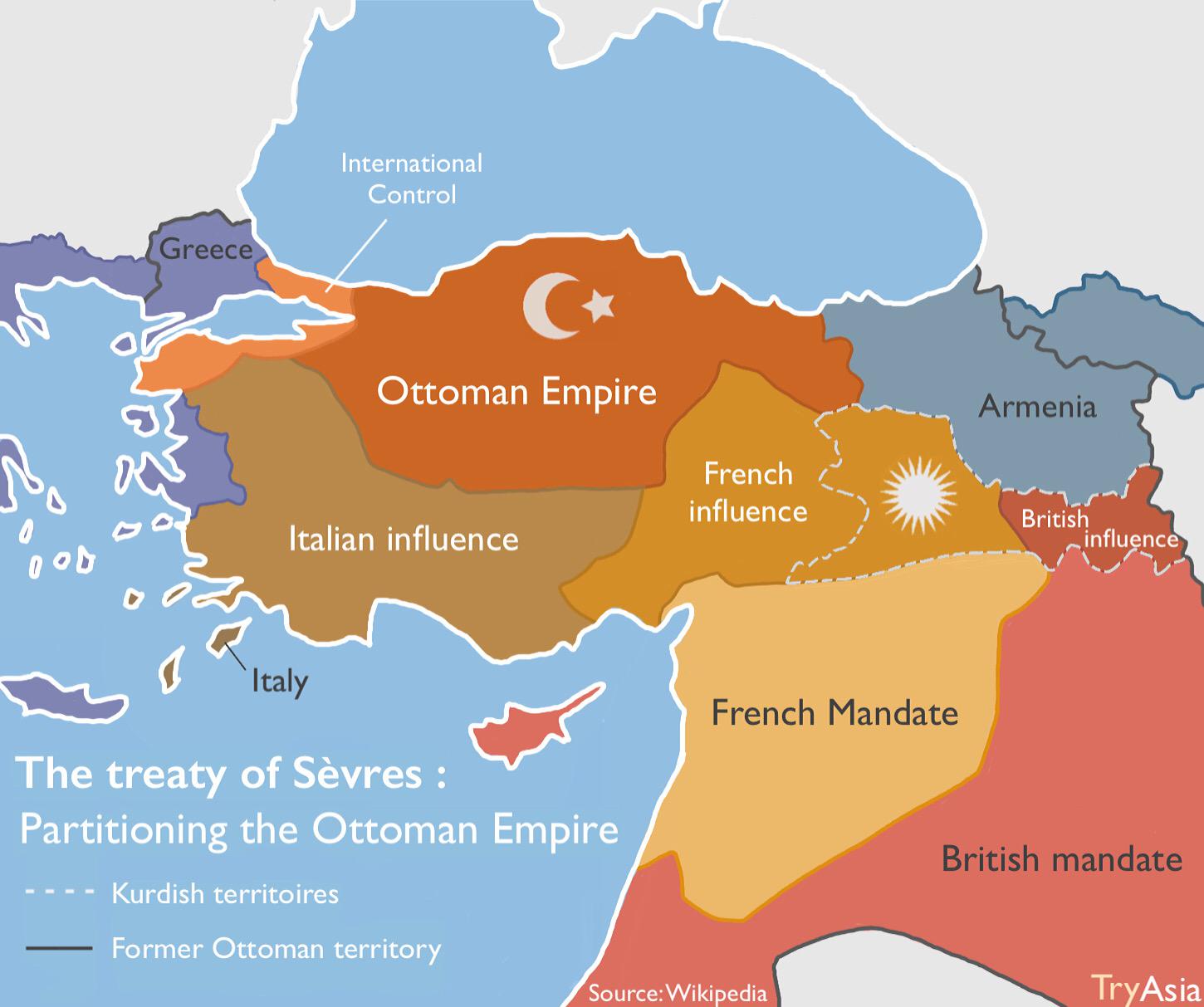
The Treaty of Sevres decrees a French mandate over Syria and Lebanon and a British mandate over Palestine.
The enforcing of the terms of the Treaty sparks nationalistic uprisings in Turkey. Ottoman rule ends. Mustapha Kemal rejects the legitimacy of the Treaty and leads a successful military insurrection.
Rejected by the new Turkish nationalist regime, the Treaty of Sèvres was replaced by the Treaty of Lausanne in 1923.
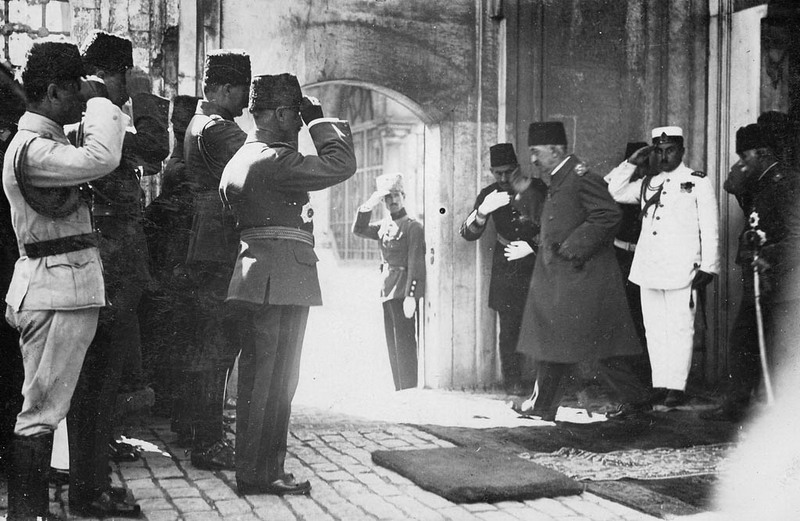
Official Abolition of The Ottoman Sultanate.
The picture depicts Mehmed VI departing from the back door of the Dolmabahçe Palace
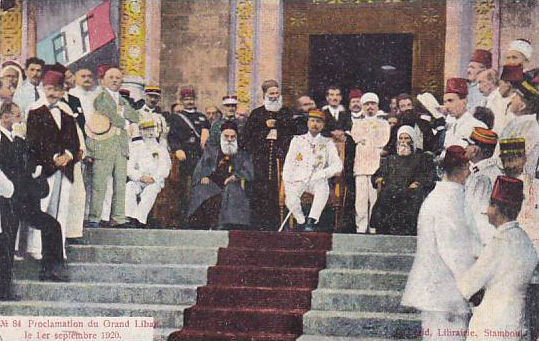
Following the Treaty of Versailles that ended the state of war between Germany and the Allied Powers, General Gouraud, French High Commissioner, visited Beirut on Sept 1st, 1920, and proclaimed Greater Lebanon as a State.
General Gouraud proclaims the creation and independence of the state of Greater Lebanon under the guardianship of the League of Nations represented by France from the porch of the Pine Residence in Beirut. Gouraud with Grand Mufti of Beirut Sheikh Mustafa Naja, and on his right is the Maronite Patriarch Elias Peter Hoayek. (Picture)
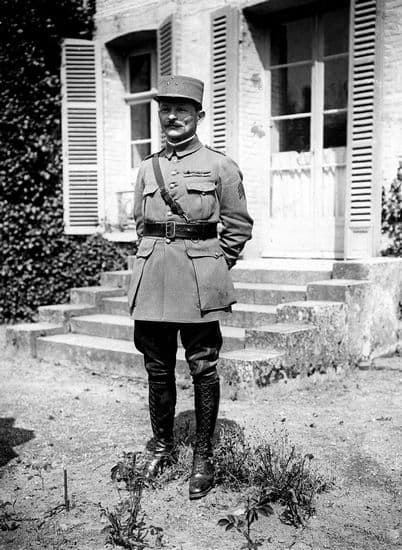
Maxime Weygand was appointed High Commissioner to the Levant until 1925
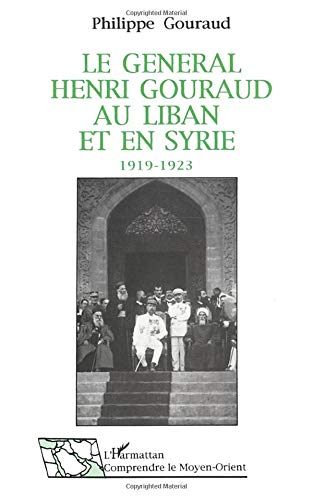
Henri Gouraud, French Mandate’s first High Commissioner appointed along with his close advisor Robert de Caix.
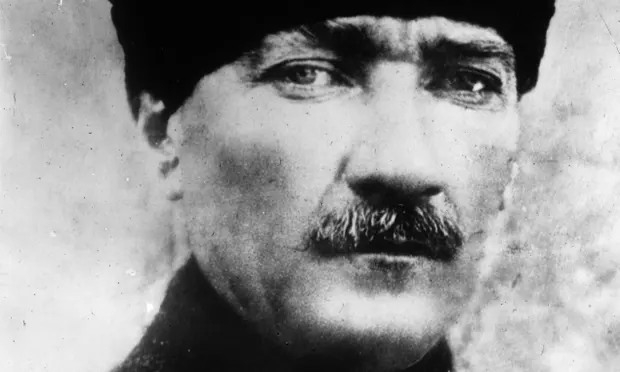
On July 1st Turkey agrees to give up all territorial claims in the Near East in particular those in the Arab world in return for recognition of the new regime
Kemal Atatürk, first president of Turkey
Michel Chiha was invited to join the Organic Law Commission, along with 13 fellow members to study the country’s future constitutional legislature. They submitted for approval twelve fundamental tenets of the future Constitution.
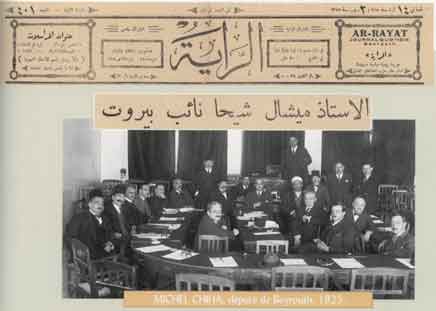
Michel Chiha ran for elections as a member of Parliament for Beirut along with Omar Daouk and Omar Beyhum. The entire list was elected in spite of the disapproval of High Commissioner General Sarrail and Léon Cayla, his representative in Lebanon.
Michel Chiha joins Alexander Khoury’s newspaper ‘Le Reveil’, the only daily French-language newspaper to be printed in Beirut at the time.
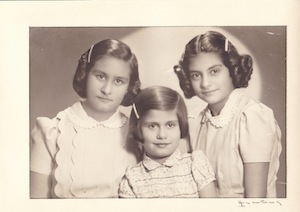
Marguerite Pharaon was the eldest daughter of Philippe Pharaon his partner in the bank. Together they had three daughters: Micheline (d.1940), Madeleine, and Marie-Claire (d.2013).
Michel Chiha, appointed member of the Finance Committee at the General Meeting of the Representative Council of Greater Lebanon, drafts the State Budgets of 1927 and 1929.
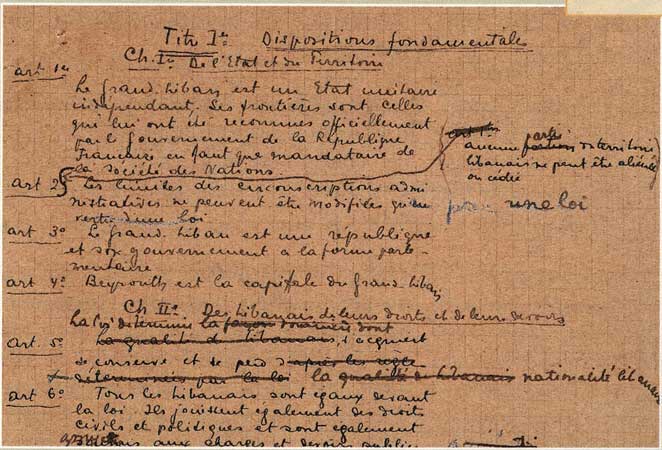
Michel Chiha played a major role in the elaboration of the Lebanese Constitution. The extent of his involvement is reflected in the handwritten manuscript and the three separate typed versions which he annotated by hand. “This Constitution, for which, I believe, I have worked harder than anyone else”.
High Commissioner Henry de Jouvenel announces the enactment of the Constitution as drafted by Michel Chiha: Lebanon becomes a Republic under the tenure of Henry de Jouvenel
Constitutional amendments between 1927 and 1929 were implemented under High Commissioner Henri Ponsot [1926-1933]. Michel Chiha is called upon to intercede with the Chamber of Deputies.
In addition to his involvement with the proposed legislative amendments to the Constitution, as head of the Parliamentary Finance Committee, Michel Chiha was also responsible for drawing up several fiscal and monetary policy recommendations aimed at establishing a coherent Government Budget.
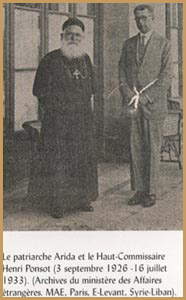
Due to the Second World War, the Constitution was suspended for the second time by High Commissioner Gabriel Puaux [1938-1940]
Michel Chiha helps establish the Beirut Stock Exchange.
Michel Chiha founds the daily English newspaper ‘Eastern Times’.
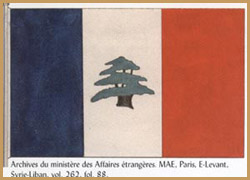
Chiha was a member of the committee appointed to choose a flag for the future Lebanese state. Michel Chiha was put in charge of incorporating into its design symbols of the nation. There was disagreement over the exact shade of red being proposed for the vertical framing bands and the actual shape of the cedar tree and Michel Chiha believed that the shade of colour extracted from murex shells by the Phoenicians of ancient Tyre and which was used to colour the bright senatorial togas of ancient Rome ought to be used on the flag.
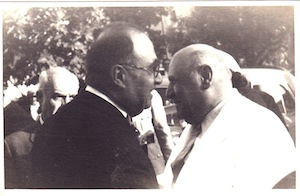
Béchara el Khoury, Michel Chiha’s brother in law, is elected President of the Republic. Michel Chiha was Khoury’s close adviser until May 27th 1949 when Béchara el-Khoury decided to extend his presidential mandate for a further six years.
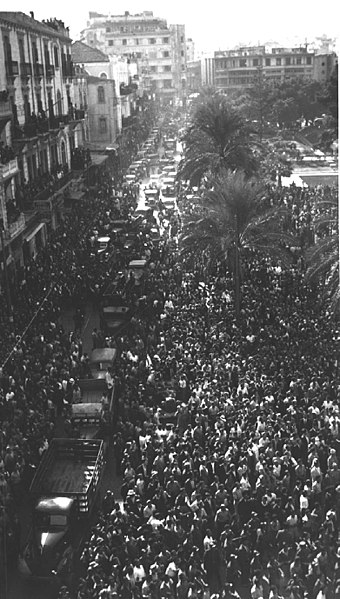
Beirut’s Martyrs’ Square during celebrations marking the release by the French of Lebanon’s government from Rashayya prison on November 22, 1943, the day of Lebanon’s independence.
An agreement is reached on March 23rd, 1946 on the simultaneous withdrawal of all foreign troops from Lebanon and the region.
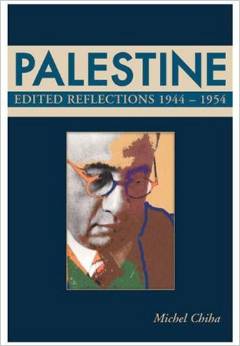
The Partition plan for mandatory Palestine was adopted by the United Nations.
The French Lebanese monetary accord was signed at the Quai d’ Orsay on February 6 1948 by Lebanese Foreign affairs Minister Hamid Frangie and French Foreign affairs Minister Georges Bidault.
Béchara el Khoury is re-elected President in accordance with the amended law of May 22nd 1948. These new stipulations allowed him to extend his presidential tenure for a further six-year term although Article 49 of the Constitution decreed against re-eligibility.
6th February, Paris, Quay d’Orsay – Signing of the Monetary Agreement 1952 Béchara el Khoury resigns – Camille Chamoun is elected President.
Camille Chamoun announces plans to revive the Economic Union between Syria and Lebanon – Michel Chiha publicly objects to it.
Michel Chiha passes away at the age of 63. He is buried in Fanar, Lebanon.
Michel Chiha is born in Mekkine, Chouf district, Mount Lebanon. The long awaited son after six daughters in succession. A further son and daughter would follow his birth.
Michel Chiha takes refuge in Egypt to avoid Turkish repression (1914-1918). Like many of his compatriots, Michel Chiha had to leave Beirut during the 1914-1918 Great War and settle in Cairo where he studied Law and obtained his law degree.
In a letter found in the family archives addressed to the poet Hector Klat, he describes his life in exile: visits to friends, changing residences between Helouan, Cairo, and Alexandria, and his enforced retreat to Ras-el-Bar. Most of his time was spent preparing for his law degree and editing the journal ‘Ébauches’.
Michel Chiha takes up residence in Cairo.
On May 16th, The Sykes-Picot Agreement was concluded in London by English diplomat Mark Sykes and French diplomat Georges Picot, dividing the Near East into two spheres of influence between France and Great Britain.
The Paris Conference declares an end to the German, Austrian, and Ottoman Empires (Jan 1919 – Aug 1920)
The Big Four (from left): Lloyd George, Orlando, Clemenceau, Wilson.
After a three-year exile in Egypt, Michel Chiha returned to Beirut at the end of the Great War.
He takes over the direction of the Pharaon and Chiha Bank at one of the most difficult times in his country’s history. Michel’s father Antoine passed away in 1903 having co-founded the Bank in 1876. A nationwide famine had decimated a quarter of the population and one-fourth of the country’s homes were in ruins.
On the 1st of September 1920, General Gouraud, High Commissioner of the French Republic and Commander in Chief of the French Levantine Army (1919 – 1923) proclaimed the independence of Greater Lebanon.
The 1st of September would continue to be celebrated for the next 23 years until 1943, when it was changed to November 22nd.
Gouraud was appointed the first high commissioner to the Levant from 1919 to 1922 succeeded by Robert de Caix from 1922 to 1923.
San Remo Conference – Its outcome, the Treaty of Sèvres, abolishes the Ottoman Empire and decrees a French Mandate over Syria and Lebanon and a British Mandate over Palestine
The prime ministers of Great Britain, France and Italy, and representatives of Japan, Greece, and Belgium.
The Treaty of Sevres decrees a French mandate over Syria and Lebanon and a British mandate over Palestine.
The enforcing of the terms of the Treaty sparks nationalistic uprisings in Turkey. Ottoman rule ends. Mustapha Kemal rejects the legitimacy of the Treaty and leads a successful military insurrection.
Rejected by the new Turkish nationalist regime, the Treaty of Sèvres was replaced by the Treaty of Lausanne in 1923.
Official Abolition of The Ottoman Sultanate.
The picture depicts Mehmed VI departing from the back door of the Dolmabahçe Palace
Following the Treaty of Versailles that ended the state of war between Germany and the Allied Powers, General Gouraud, French High Commissioner, visited Beirut on Sept 1st, 1920, and proclaimed Greater Lebanon as a State.
General Gouraud proclaims the creation and independence of the state of Greater Lebanon under the guardianship of the League of Nations represented by France from the porch of the Pine Residence in Beirut. Gouraud with Grand Mufti of Beirut Sheikh Mustafa Naja, and on his right is the Maronite Patriarch Elias Peter Hoayek. (Picture)
Maxime Weygand was appointed High Commissioner to the Levant until 1925
Henri Gouraud, French Mandate’s first High Commissioner appointed along with his close advisor Robert de Caix.
On July 1st Turkey agrees to give up all territorial claims in the Near East in particular those in the Arab world in return for recognition of the new regime
Kemal Atatürk, first president of Turkey
Michel Chiha was invited to join the Organic Law Commission, along with 13 fellow members to study the country’s future constitutional legislature. They submitted for approval twelve fundamental tenets of the future Constitution.
Michel Chiha ran for elections as a member of Parliament for Beirut along with Omar Daouk and Omar Beyhum. The entire list was elected in spite of the disapproval of High Commissioner General Sarrail and Léon Cayla, his representative in Lebanon.
Michel Chiha joins Alexander Khoury’s newspaper ‘Le Reveil’, the only daily French-language newspaper to be printed in Beirut at the time.
Marguerite Pharaon was the eldest daughter of Philippe Pharaon his partner in the bank. Together they had three daughters: Micheline (d.1940), Madeleine, and Marie-Claire (d.2013).
Michel Chiha, appointed member of the Finance Committee at the General Meeting of the Representative Council of Greater Lebanon, drafts the State Budgets of 1927 and 1929.
Michel Chiha played a major role in the elaboration of the Lebanese Constitution. The extent of his involvement is reflected in the handwritten manuscript and the three separate typed versions which he annotated by hand. “This Constitution, for which, I believe, I have worked harder than anyone else”.
High Commissioner Henry de Jouvenel announces the enactment of the Constitution as drafted by Michel Chiha: Lebanon becomes a Republic under the tenure of Henry de Jouvenel
Constitutional amendments between 1927 and 1929 were implemented under High Commissioner Henri Ponsot [1926-1933]. Michel Chiha is called upon to intercede with the Chamber of Deputies.
In addition to his involvement with the proposed legislative amendments to the Constitution, as head of the Parliamentary Finance Committee, Michel Chiha was also responsible for drawing up several fiscal and monetary policy recommendations aimed at establishing a coherent Government Budget.
Due to the Second World War, the Constitution was suspended for the second time by High Commissioner Gabriel Puaux [1938-1940]
Michel Chiha helps establish the Beirut Stock Exchange.
Michel Chiha founds the daily English newspaper ‘Eastern Times’.
Chiha was a member of the committee appointed to choose a flag for the future Lebanese state. Michel Chiha was put in charge of incorporating into its design symbols of the nation. There was disagreement over the exact shade of red being proposed for the vertical framing bands and the actual shape of the cedar tree and Michel Chiha believed that the shade of colour extracted from murex shells by the Phoenicians of ancient Tyre and which was used to colour the bright senatorial togas of ancient Rome ought to be used on the flag.
Béchara el Khoury, Michel Chiha’s brother in law, is elected President of the Republic. Michel Chiha was Khoury’s close adviser until May 27th 1949 when Béchara el-Khoury decided to extend his presidential mandate for a further six years.
Beirut’s Martyrs’ Square during celebrations marking the release by the French of Lebanon’s government from Rashayya prison on November 22, 1943, the day of Lebanon’s independence.
An agreement is reached on March 23rd, 1946 on the simultaneous withdrawal of all foreign troops from Lebanon and the region.
The Partition plan for mandatory Palestine was adopted by the United Nations.
The French Lebanese monetary accord was signed at the Quai d’ Orsay on February 6 1948 by Lebanese Foreign affairs Minister Hamid Frangie and French Foreign affairs Minister Georges Bidault.
Béchara el Khoury is re-elected President in accordance with the amended law of May 22nd 1948. These new stipulations allowed him to extend his presidential tenure for a further six-year term although Article 49 of the Constitution decreed against re-eligibility.
6th February, Paris, Quay d’Orsay – Signing of the Monetary Agreement 1952 Béchara el Khoury resigns – Camille Chamoun is elected President.
Camille Chamoun announces plans to revive the Economic Union between Syria and Lebanon – Michel Chiha publicly objects to it.
Michel Chiha passes away at the age of 63. He is buried in Fanar, Lebanon.





















